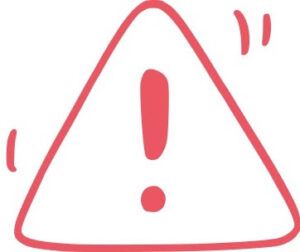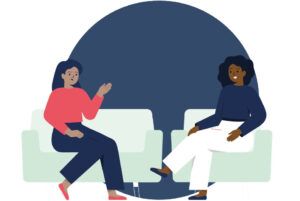Why Self-Doubt is a Counselor’s Super Power

I hung up the phone after a session with my patient, with a familiar, unsettled feeling. I wasn’t sure if what I was doing was helpful to her; I reviewed the session in my mind, considering different directions I could have taken. I cringed a bit when I thought of what seemed like a mistake, and made a mental note to talk about it to a colleague and friend whose clinical opinion I value. Then I thought to myself: I’ve been a therapist for 30 years…would I ever be free of this near constant, nagging self-doubt about how I’m doing?
Then I read a perspective-changing research study, suggesting that for mental health providers, self-doubt may not be a liability at all. In fact, those of us who experience higher levels of self-doubt tend to achieve better outcomes for our patients. Wait, what? This uncomfortable, sometimes ruminative wondering about what I’m doing in sessions, could actually be my friend?

How??!
What is called ‘professional self-doubt’ in the literature (it even has its own acronym, PSD 😉 ), is likely what most of us would call humility. And humility is apparently great for us, and for our patients! When we acknowledge our limitations and question our own efficacy, we demonstrate a willingness to learn and grow. This mindset fosters curiosity, empathy, and high quality listening.
Rather than trying to lower self-doubt, those of us who embrace it can use it as a catalyst for self-reflection and improvement, driving us to continually evaluate our performance, seek feedback, and foster a greater willingness to adapt our approaches to meet patients’ needs. This adaptability likely enhances the therapeutic alliance, which is consistently one of the strongest predictors of positive outcomes in psychotherapy. Additionally, those of us with more self-doubt are more likely to engage in ongoing professional development and consultation. This ‘growth-mindset’ aligns with qualities often associated with humility, suggesting that our professional self-doubt may not only reflect humility but actively contribute to it.

The Absence of Humility
The opposite of humility is overconfidence, or arrogance. Overconfidence is particularly unsafe as it doesn’t allow us to recognize mistakes we make with patients, see when we may have caused a therapeutic rupture, or see that the client isn’t connected to us, all of which potentially hinder progress and cause harm.
When we are overconfident in our effectiveness, instead of self-reflecting on what we could do better or differently when patients don’t return for sessions, or are not improving, we tend to blame them. In a real-life example of arrogance, we once let a counselor go from our team, because when we shared critical patient feedback, she responded that they just ‘weren’t ready to get better’.
Lay Counselors & the Question of Safety
The role of lay counselors—unlicensed individuals trained to provide mental health counseling—has been a subject of debate within our field. Some of us argue it is inherently unsafe for lay counselors to provide mental health care. However, safety in counseling is not determined by a degree or licenses. What makes us “safe” as providers is our level of humility, which influences our ability to see and admit mistakes, our willingness to seek consultation, and our commitment to continual growth. Lay counselors who embody these traits and engage in ongoing supervision and self-reflection can provide care that is just as effective as licensed professionals.

And…
There is one catch: humility isn’t about beating ourselves up! Self-compassion must accompany professional self-doubt for it to benefit our patients. While self-doubt drives critical self- reflection and growth, self-compassion provides the resilience needed to navigate this reflection constructively.
Implications for Practice
For those of us in the field, cultivating a healthy relationship with professional self-doubt can be transformative. Instead of viewing self-doubt as a weakness, we can reframe it as a strength that drives growth and improves patient care. As supervisors, we can normalize conversations about self-doubt, emphasize its potential to strengthen therapeutic effectiveness, and both model and actively support self-compassion as an essential counterpart.
Here’s to self-compassion and humility!



